Beginner’s Guide to Car Wrapping in NJ
Whether you’re just getting started with vehicle wrapping or work in the industry, this page contains many useful resources that will round out your car wrapping knowledge. Let’s get started!
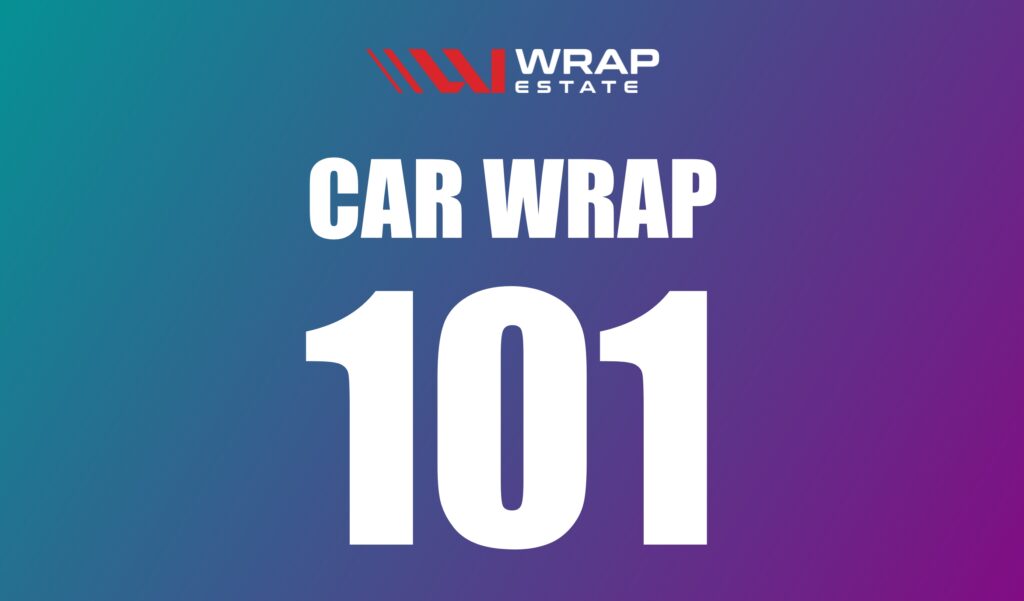
Contents of the Article
I. Introduction
Car wrapping – an increasingly popular trend in the 21st century – is the process of applying a printed adhesive vinyl to a vehicle’s painted surface. The process can give your ride a whole new look that can be anything from classic and subtle to loud and eye-catching, and provides an opportunity to express your own personal style. It’s also a great way to promote a brand or business, allowing you to transform your vehicle into a mobile billboard.
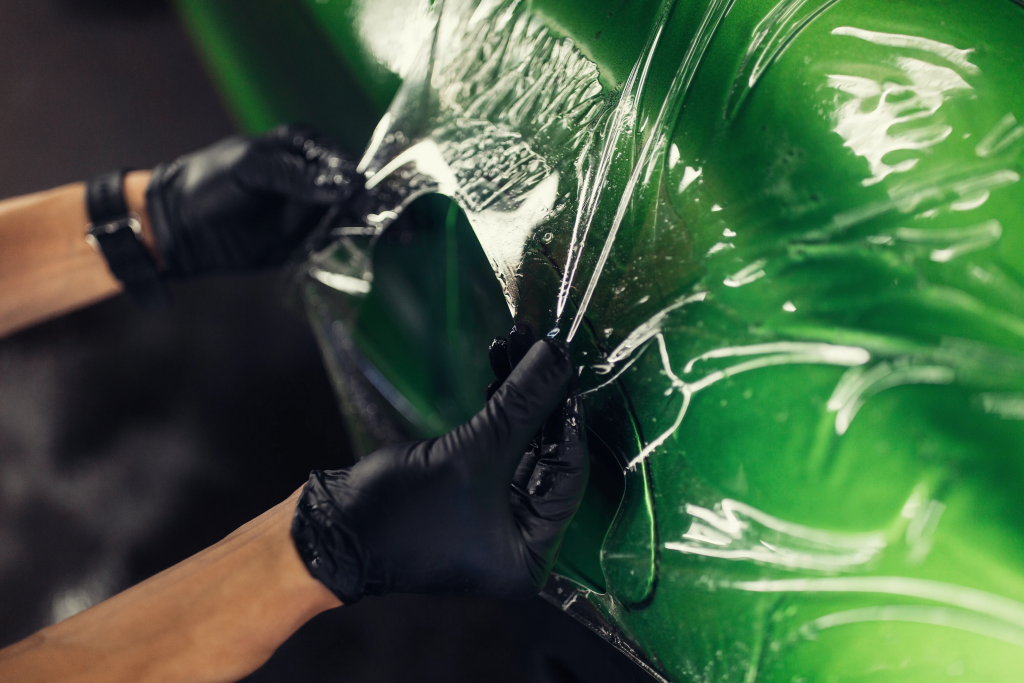
A. What Are Car Wraps?
Car wraps are essentially an incredibly strong adhesive vinyl that can be applied directly to a car’s surface, completely covering the existing paintwork in a single, seamless layer. Wraps come in a variety of different textures and finishes, from glossy or matte to textured carbon-fiber. They can be printed with almost any pattern, from graphics to full-color images, and some even offer a unique finish that replicates the look and feel of a vehicle’s original paintwork.
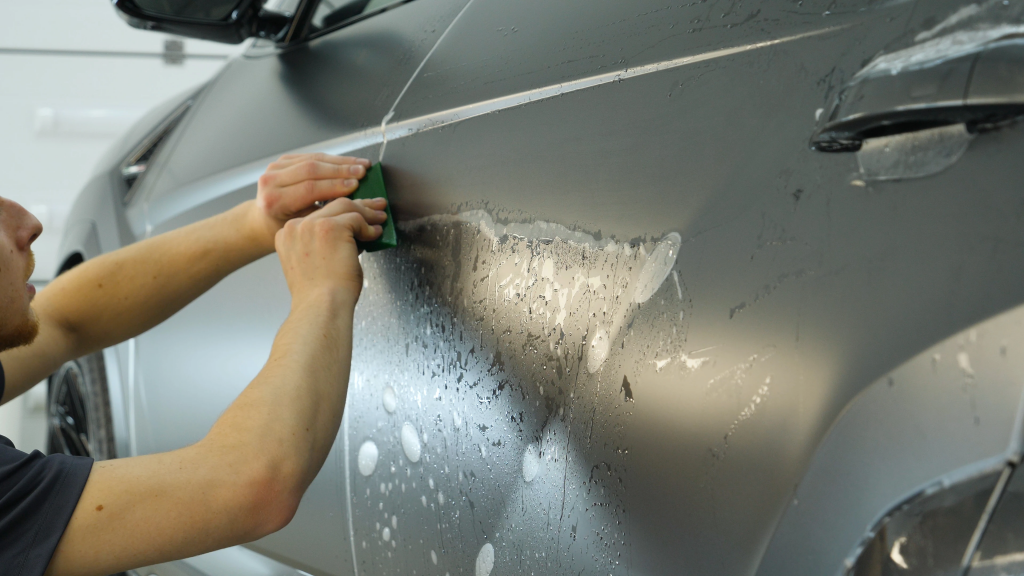
B. The Purpose of Car Wraps
Car wraps are an incredibly versatile way to personalize your vehicle as well as promote your business or brand. They can be used to create a more personal style, making your vehicle stand out from the rest with a truly unique look. They are also great for promotional purposes, providing an opportunity to transform your vehicle into a mobile billboard, with eye-catching designs and logos. Additionally, car wraps can help protect your vehicle’s original paintwork, providing an additional layer of protection from the elements.

II. Cost Comparison: Wrapping vs Painting
Weighing up the cost of wrapping a car versus painting a car can elicit different reactions, but which one is actually cheaper? In this article, we’ll compare the costs of car wrapping and car painting and explain some of the factors that can affect the final price.
A. Question: Is It Cheaper To Wrap Or Paint A Car?
At first glance, car wrapping may appear to be the costlier alternative, but it doesn’t always have to be that way. Both processes involve multiple steps and it also depends on the type of wrap you’re looking to apply and the color of paint. It’s important to consider the quality that you’d like the end product to have and the budget you’ve set for the project.
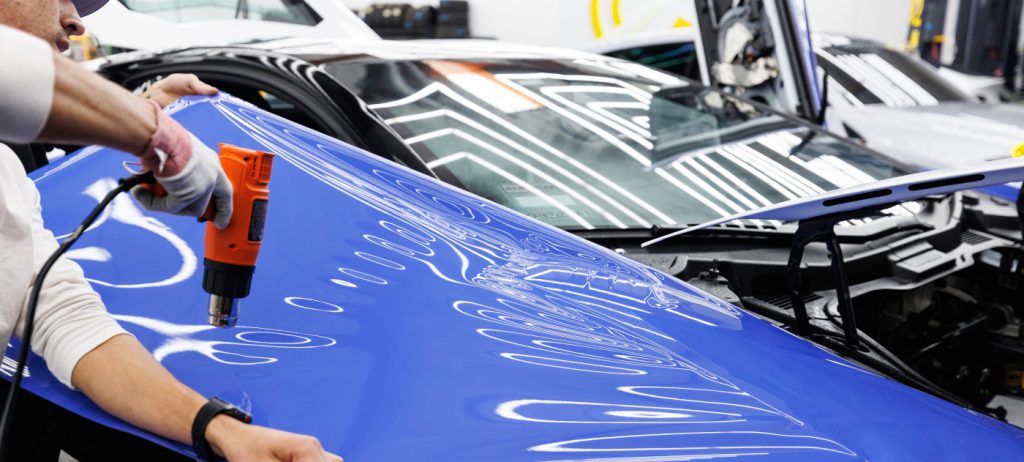
B. Cost Comparison of Wrapping and Painting a Car
On average, wrapping a car costs anywhere from $1000-$5000 depending on a variety of factors such as the size and make of the vehicle and the quality of the wrap materials being used. High quality wraps are more expensive, but they can also last a lot longer.
Painting a car, on the other hand, can cost between $1000-$7000, depending on the circumstances. Unsurprisingly, an extensive paint job with a custom finish will cost more than a basic paint job. Professional painting is an expert job and requires more time and materials, so it’s no surprise it can be on the expensive side.
C. Factors That Affect Cost of Wrapping a Car
When it comes to cost, there are a variety of factors that affect how much you might end up spending on car wrapping. Here are some of the main points to keep in mind:
• Vehicle Size – The size of the car is obviously going to influence the cost of the wrap. Larger cars require more wrap material and take more time to complete, and they also tend to have more intricate designs that need to be considered when applying the wrap.
• Design Complexity – Complex wrap designs will also add to the overall cost of the wrap. If you have a highly intricate design planned for your vehicle, you can expect to pay a higher price for the extra time and materials.
• Wrap Materials – The materials used for the wrap can also vary in price and quality. High-end vinyl wraps cost more than standard film wraps, but they usually increase the longevity of the wrap, so there’s more bang for your buck.
• Professional Installation – Professional installation is recommended for vehicle wraps and this will also influence the cost. A professional wrap can make your car look better for a longer period of time, so it’s definitely worth the extra money.
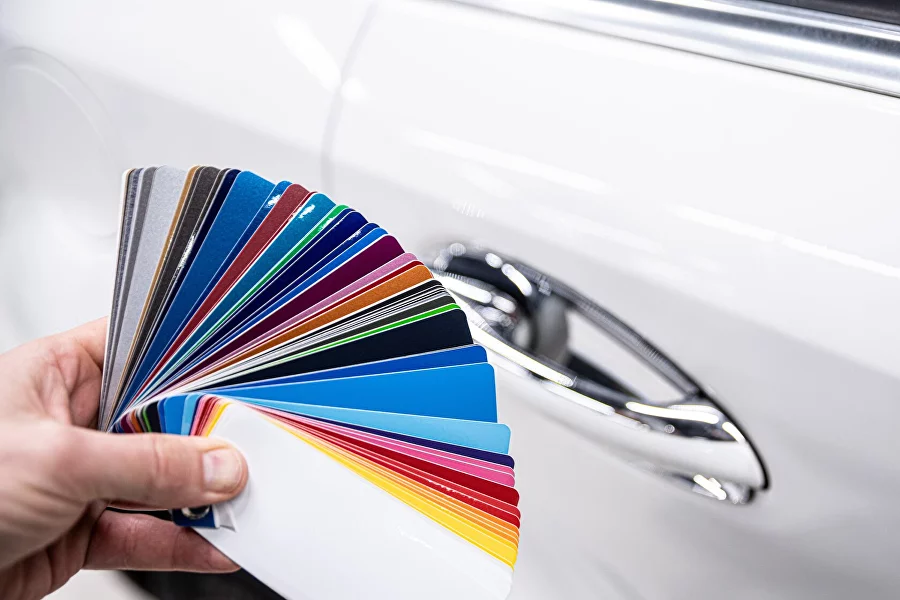
It’s not possible to definitively say whether it’s cheaper to wrap or paint a car. Ultimately, it depends on the type of wrap you’re looking to apply and the color of paint you want, and there are a few different factors that can affect the cost. Careful consideration of these factors is key to nailing the perfect look for your car while staying within your budget.
III. The Long-Lasting Power of Car Wraps
The phrase “car wrap” refers to a large piece of vinyl that is used to completely or partially cover the body of a vehicle. In recent years, the use of car wraps has grown in popularity amongst car owners due to the flexibility of the material and the ease of installation. For those who want to revamp their vehicles, the use of wraps provides a cost-effective long-term solution that takes less time and money than other traditional methods.
That said, one of the most common questions associated with car wraps is how long they can stay intact. To understand the durability of a wrap job on a car, there are several factors to consider.
A. Materials Used in a Wrap Job
The type of vinyl material used on a car wrap is the biggest factor contributing to its longevity. Professional wrap jobs usually incorporate a thicker vinyl material that is specifically designed to last against exterior elements, such as inclement weather and extreme temperature changes. Usually, these thicker vinyl materials come with a warranty and are backed by the manufacturer.
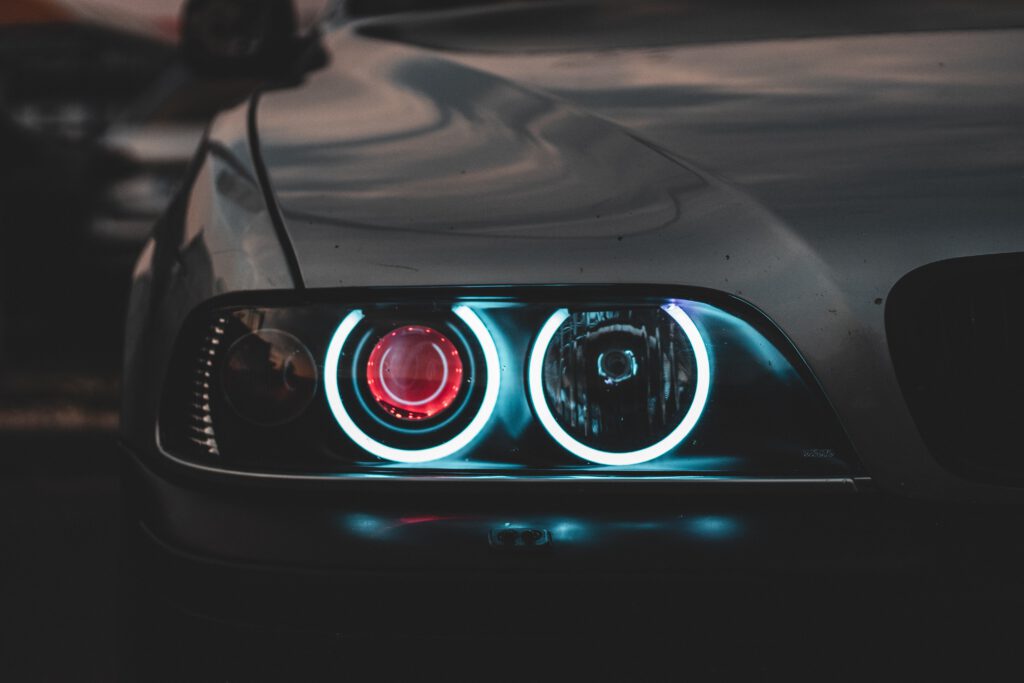
B. Skill of the Installer
Another key factor to consider when debating the lifespan of a car wrap is the quality of the installation. Skilled professionals should be employed to ensure the wrap is properly attached to the vehicle’s body, without any bubbles or wrinkles. When done correctly, this ensures the wrap will remain intact over a much longer period.
C. Care and Maintenance of Wrap
Once the wrap has been installed, it is important for the owner of the vehicle to pay attention to how the wrap is treated. Wraps can become damaged if they are not properly maintained. The best way to ensure a wrap lasts is to keep the vehicle clean and protect it from heavy and extreme weather conditions.
D. How Long Does a Wrap Job Last?
So, how long does a wrap job last? Generally, a wrap job will last anywhere from 3 to 5 years. Depending on the type of material used, quality of installation, and level of maintenance, the wrap job may last even longer. Taking proper care of a wrap is essential to extending its lifespan.
E. Get Professional Results with the Right Wrap
When considering the usage of a car wrap, it is important to find a reliable and qualified wrap provider. Professionals who specialize in customizing vehicles are the best suited to install a car wrap and provide the highest quality results in the shortest amount of time.
Durability is a key factor to consider when debating whether to opt for a wrap job. With the right material and skillful installation, car wraps can last up to 5 years and beyond, providing a cost-effective alternative to other methods of customizing a vehicle. So, if you’re looking to revamp your vehicle, consider the long-lasting power of car wraps.

IV. Cost of Wrapping a Car in New Jersey
It’s no surprise that cars have become a status symbol over the years. A good looking car that is well taken care of can turn heads. But if you truly want to make your car stand out, you could consider a car wrap. Wrapping a car can act as a way to express yourself, give your car a more modern look, or simply stand out from the rest. However, when it comes to getting your car wrapped in New Jersey, how much does it cost?
A. What’s the Average Cost of Wrapping a Car in New Jersey?
When it comes to wrapping a car in New Jersey, many factors can affect the cost of the project. Depending on the amount and type of wrapping you want done to your car, the cost of the project can range anywhere between $2,000 and $5,000. The cost of wrapping a car will ultimately depend on the size of the car, the type of wrap being installed, and the complexity of the design, as well as any additional services needed such as painting or window tinting.
B. Factors that Affect the Cost of Wrapping a Car in New Jersey
As previously mentioned, the size of the vehicle plays a vital role in determining the cost of car wrapping in New Jersey. Wrapping a large vehicle such as a truck will typically cost more than wrapping a small car, as the area being covered is greater. The type of wrap being installed is also a critical factor. Since there are a few different types of wraps available, the cost of the wrap can vary from one room to the other. Moreover, the complexity of the design that is being installed may also play a role. The more intricate the design, the higher the cost. Finally, any additional services such as window tinting or painting may also affect the total cost of the project.
The cost of wrapping a car in New Jersey can vary drastically depending on the size of the vehicle, the type of wrap being installed, the complexity of the design, as well as any additional services required. While the average project can range anywhere between $2,000-5,000, the exact cost of the project will ultimately depend on the specific factors mentioned above.
V. Maintenance of Car Wraps: Can You Wash and Wax Them?
When it comes to making sure your car looks its best, car wraps are a popular way to add a unique look to any vehicle. But how do you maintain a car wrap? Can you wash and wax it like you would a regular vehicle? With important considerations like durability against scratches and the potential impact they have on paint, it’s important to know how to care for your car wrap. In this article, we will discuss the questions surrounding car wrap maintenance and the best practices for keeping your car looking brand new.
A. Can You Wash a Wrapped Car?
The short answer is yes, you can wash a wrapped car. Some parts of your vehicle may be more delicate than others when exposed to water and soap. In most cases, however, you can safely wash a wrapped car as you would with a regular vehicle. By following the steps below, you can effectively and safely clean your car:
• Use a mild solution of soap and water to remove general dirt and grime from the wrap surface.
• Rinse your vehicle with a hose
• Dry your vehicle with a clean and soft towel.
• Carefully inspect your car for dirt and debris.
It is important to use a gentle car cleaning product when washing a wrapped car since other products might cause damage or discoloration. Additionally, make sure to use a generous amount of water to minimize residue and streaks.
B. Does Car Wrap Scratch Easily?
Car wraps made of quality materials such as 3M and Avery Dennison are designed to be resistant to scratches. This is particularly true when the wrap is applied correctly, which is why it’s important to have a professional install your car wrap to ensure a perfect fit. While surface scratches may occur, they should be relatively light, and can be buffed out with a light polish.
C. Durability of Car Wrap Against Scratches
The fabric itself is relatively durable, with 3M and Avery Dennison rated for up to nine years depending on the product. However, factors such as outside elements (including weather, pollutants, and debris) can all have an impact on the longevity of your car wrap. If scratches and dings occur, you may need to repair the wrap or replace it sooner than the stated 9 years.
D. What is the Disadvantage of Car Wrap?
One of the main drawbacks of car wrap is that it can be expensive. The cost will depend on the size of your vehicle, the wrap material you choose, and the complexity of design you want. However, when compared to a traditional repainting job, car wraps are usually a more cost-effective way to change the style of your vehicle.
E. Does a Car Wrap Ruin Paint?
Car wraps do not damage paint and in most cases, they help protect the paint underneath. As long as the wrap was applied correctly and professionally, the paint should remain intact. The same goes for removal, which should be done carefully to prevent any possible damage.
F. Impact of Car Wrap on Paint
Car wraps provide a protective layer over your vehicle’s paint, meaning that any scratches, dings, and dirt will only affect the wrap itself and not the paint underneath. It also protects the paint from sunlight and oxidation, which can make it look dull and worn over time.
G. Can You Wax a Wrapped Car?
Yes, it is safe to wax a wrapped car, however, it is important to use wax specially formulated for car wraps. Car wrap wax is typically a softer wax, which will clean and protect your wrap without causing any damage.
H. Maintenance of Wax on a Wrapped Car
After waxing your wrapped car, it is important to perform regular maintenance. Try to wax your vehicle at least two times a year to preserve the look and protection of your car wrap. Additionally, inspect your vehicle periodically for dirt, debris, and any visible wear and tear to the wrap. If you notice any damage, getting it repaired as soon as possible is essential.
VI. The Longevity of 3M Vinyl Wraps
Everyone has seen those beautiful luxury cars rolling around town with different coloured vinyl wraps adorning the body. Chances are, they are protected by 3M’s superior vinyl wraps. Under normal conditions, 3M wraps are expected to last for up to five years, providing beautiful custom graphics for cars, boats and other vehicles. However, the longevity of 3M wraps depends on several factors, so let’s explore what it takes to keep these wraps looking their best for as long as possible.
A. So, How Long Does 3M Vinyl Wrap Last?
On average, 3M vinyl wraps have a lifespan of nearly five years before signs of wear and tear start to appear. However, the longevity of the wrap largely depends on the climate it is exposed to and the amount of sunlight it is exposed to. If a wrap is routinely exposed to harsh elements, like extreme hot or cold weather conditions or direct sunlight, it will likely fade or become brittle faster. It will also puncture more easily.
B. Factors that Affect the Longevity of 3M Vinyl Wraps
The longevity of a 3M vinyl wrap depends on the proper application of the vinyl and the following environmental factors:
• Temperature and Humidity – The longevity of a 3M wrap is diminished the higher the temperature and relative humidity the wrap is exposed to. Warmer temperatures can cause the adhesive to weaken, while higher humidity can cause the wrap to become brittle and prone to tearing.
• Sun Exposure – Excessive sunlight can cause vinyl wrapping to discolour and even fade over time. To protect the wrap, it’s best to apply a UV protectant to prolong its lifespan.
• Cleaning – Cleaning a 3M wrap regularly is important for maintaining its longevity. Mild soaps and detergents are preferred, as strong solvents can strip away the adhesive from the vinyl. Once applied, the wrap should be kept clean of dust and debris to extend its life.
• Installation – Proper installation is key for achieving maximum longevity for a 3M wrap. The wrap should be applied by a professional who is familiar with the product and the vehicle being wrapped. Taking the time to clean the surface first will also significantly increase the lifespan.
With proper installed and appropriate maintenance, a 3M vinyl wrap can last up to five years. Although the wrap’s lifespan may vary depending on its environment, proper care and maintenance can help protect the wrap and keep it looking its best.
VII. Wrapping Your Car in New Jersey: Legal Considerations
Wrap your car to express your personality and stand out from the crowd, but is it legal in NJ? The short answer is, yes. In this section, we explore the legal considerations of wrapping your car in the Garden State.
Car Wrapping Laws in New Jersey
New Jersey drivers should familiarize themselves with the regulations concerning vehicle wraps and the restrictions that the state has in place. The state of New Jersey has several laws and regulations dictating how, when, and where drivers can wrap their cars
For starters, it’s important to note that the New Jersey Department of Environmental Protection (NJDEP) has strict regulations in place that must be adhered to when it comes to vehicle wrapping. According to their website, the following types of films are strictly prohibited:
• Solvent-based films
• films made of PVC or any petroleum-based plastic
• films made of metals, including aluminum
• films containing asbestos or other hazardous materials
• films that are completely clear and/or see-through
In addition, any use of a vinyl film may not do any of the following:
• Replace or hide any existing paintwork
• Cover more than 2/3 of any vehicle’s exterior
• Hide or obscure vehicle registration numbers, company logos, or any other markings that are required by the NJDEP
• Interfere with the driver’s view, either with or without headlights on
• Alter the vehicle’s other safety features, such as its braking or airbag system
Wrapping your car in New Jersey is a great way to customize the look of your vehicle. Make sure that you are familiar with the regulations and laws that the state has in place, and also make sure to properly maintain your wrap. Whether you’re looking to express your personality or stand out from the crowd, New Jersey has the resources–and laws to help you do it.